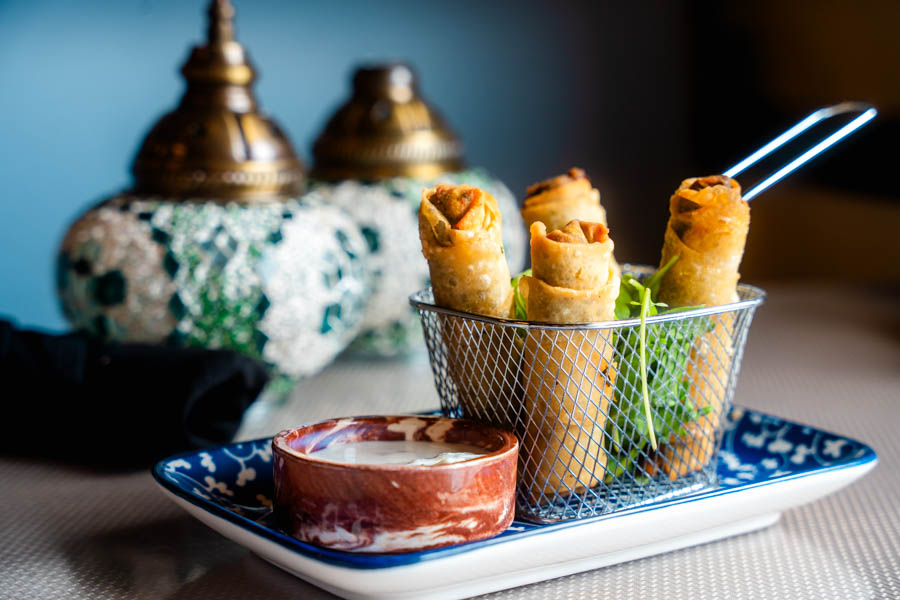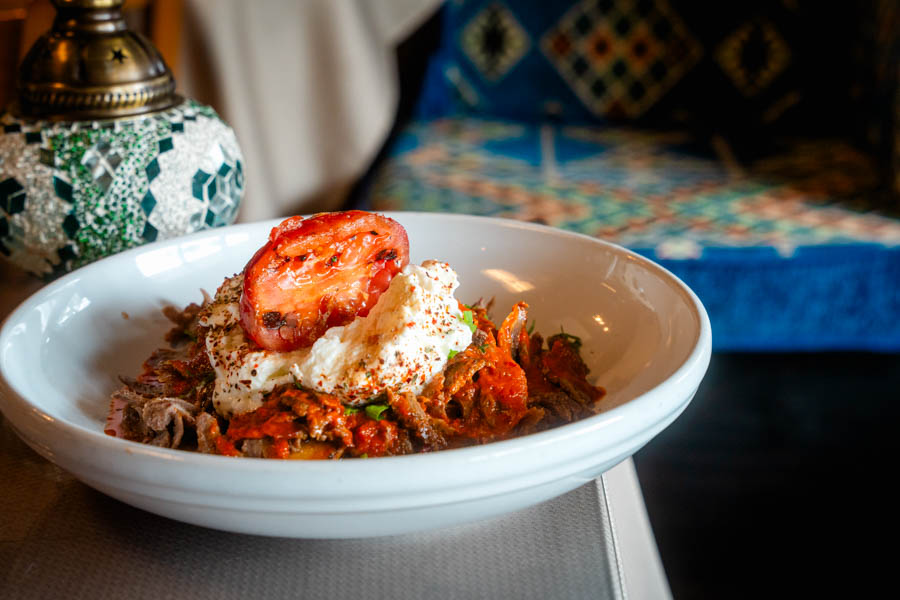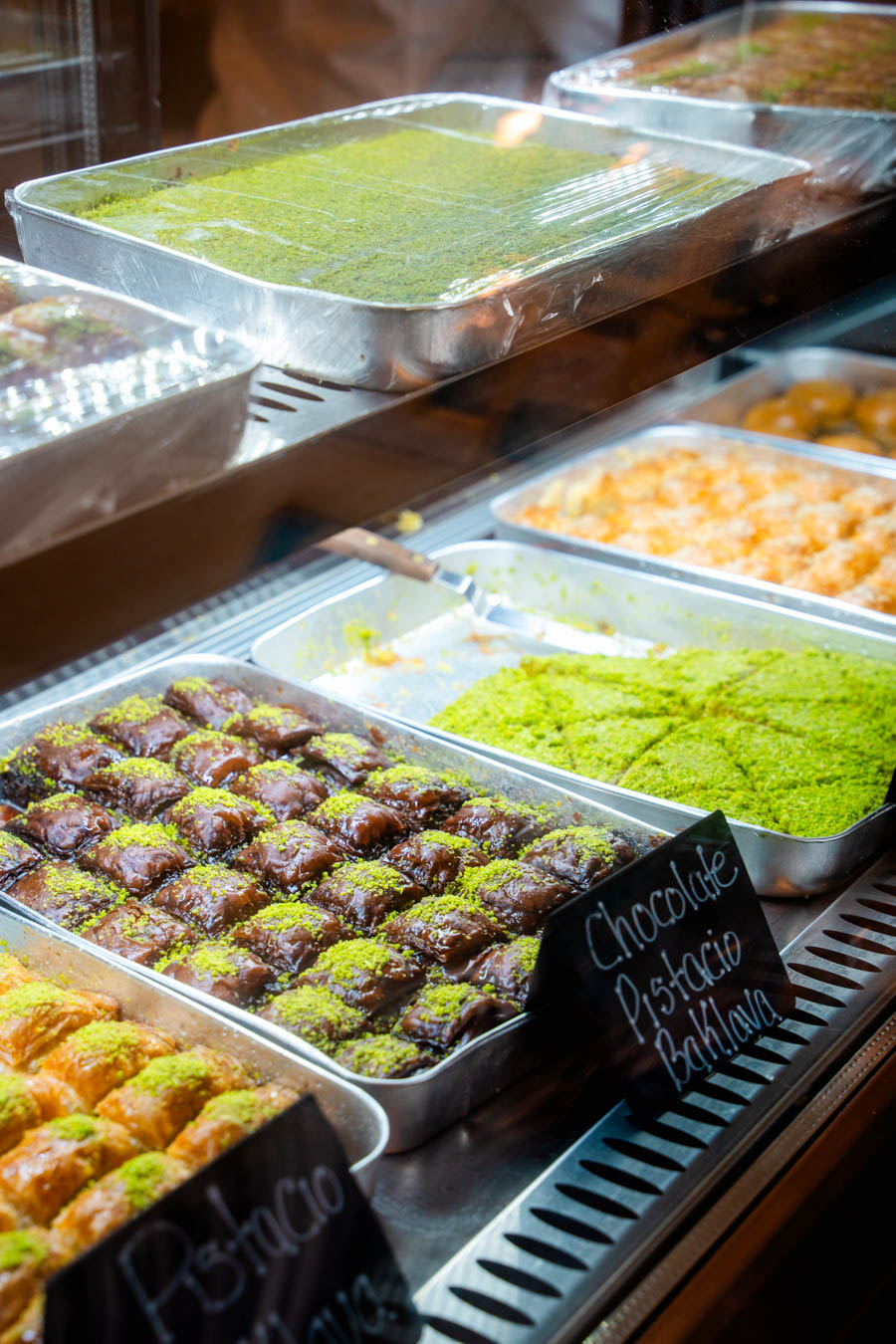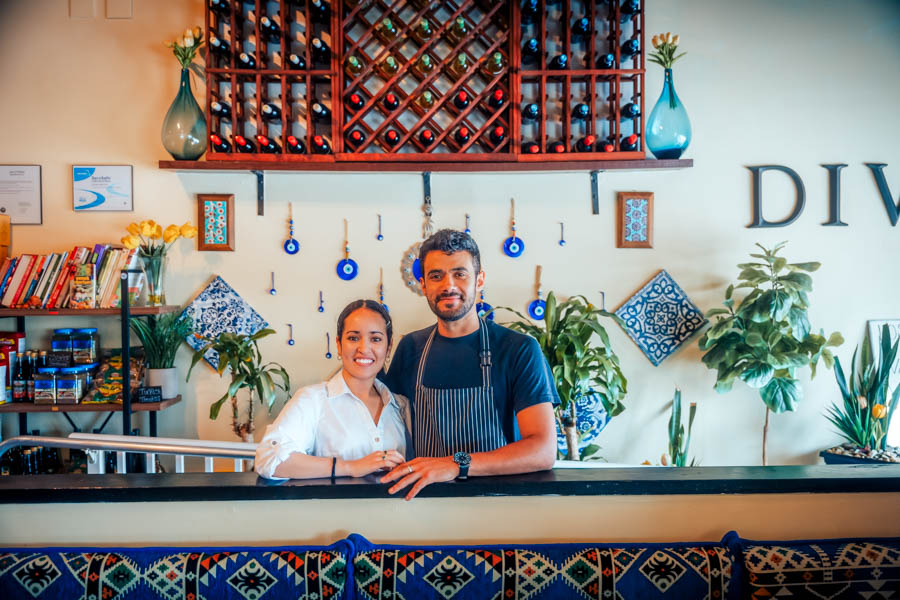In some ways, Gulf Gate is like an everyman’s United Nations of food. A hungry diplomat could spend hours deciding between German schnitzel, Japanese sushi, Italian pasta, Mexican cochinita pibil, four types of pizza, a French baguette or Polish pierogies. And as of this past spring, the hungry diplomat must now consider Turkish cuisine. Divan Turkish Cuisine, owned and operated by chef Ugur Sariyar and his wife Dede, adds to the south Sarasota hotspot with Anatolian treasures that bring new, welcomed flavor profiles to a food scene gleefully bursting at the seams.

The cold mezze selections feature some Middle Eastern staples like hummus, baba ganoush and stuffed grape leaves. The hummus—which chef Sariyar is quick to point out is not an especially common sight on a Turkish table—is creamy and light, with a drizzle of rich olive oil and a dash of zaatar. A shakshuka, not to be confused with the Israeli version, looks and tastes similar to an eggplant caponata from southern Italy and serves as a nice starter. Falafel and borrek are safe options from the warm mezze offerings, the former served over tahini, the latter featuring feta, mozzarella and spinach hand rolled into delicate phyllo dough.
A shepherd’s salad is as cool and refreshing as a glass of ice water. Similar to a fattoush salad, this delicious dish comes with crisp diced cucumbers and tomatoes with a perky addition of mint and lemon juice. The cucumber, mint and lemon combine to give the salad its bright, hydrating flavor profile. An organic beet and kale salad—not a Turkish dish but a crowd-pleaser nonetheless—is equally refreshing but comes with a little more heft. The earthiness of the beets serves as a nice complement to the light bitterness of the kale and sweetness of the carrots.
By now, it’s worth noting that Divan offers a selection of Turkish wines that explore some of the grape varieties indigenous to Anatolia. While Old World countries like France, Italy and Spain get more fanfare for their wine, Türkiye’s winemaking history predates the Roman Empire by millenia. Some of Divan’s wines even come from chef Sariyar’s native Ankara in central Türkiye.

The Yakut from Kavaklidere vineyards in Eastern Türkiye is a red blend of two indigenous varietals, öküzgözü and bogazkere. Lighter and with bright notes of fruit, a glass of Yakut pairs well with some of Divan’s heartier meat dishes like the iskender. The favorite of many Turkish natives, the iskender dish comes piled high with lamb shaved fresh off the vertical rotisserie. A rich tomato sauce is poured over the pile of meat, then topped with a dollop of rich yogurt before being finished with a sprinkling of zaatar. Beneath it all are pieces of pita bread, soaking up all the sauce. Except for a platter of smoked brisket, it’s hard to imagine a dish in any cuisine more appealing to a carnivore.
But, if land-dwelling creatures make a diner think long and hard about their cholesterol, then Divan’s branzino offers an equally tasty, lighter meal. Served as either a filet or whole, the branzino is expertly grilled with a smokey char. Chef Sagiyar leaves the skin on the branzino, which yields a crispy layer that accents the delicate meat. It comes served atop buttery brussels sprouts, green beans and carrots. A good squeeze from the charred lemon rounds out a fish entree that pairs well with the Angora from Kavaklidere, a light white wine from the Aegean coast.

Four different kinds of baklava, including chocolate, are as decadent an ending to a meal as one could hope for. If you must choose one baklava, make it chocolate. But the mezze and entrees have induced a bit of sleepiness—the restaurant is named after a piece of comfortable furniture, after all—a pot of tea is a decidedly Turkish end to a meal, though a rich, spiced Turkish coffee packs a little more punch.









